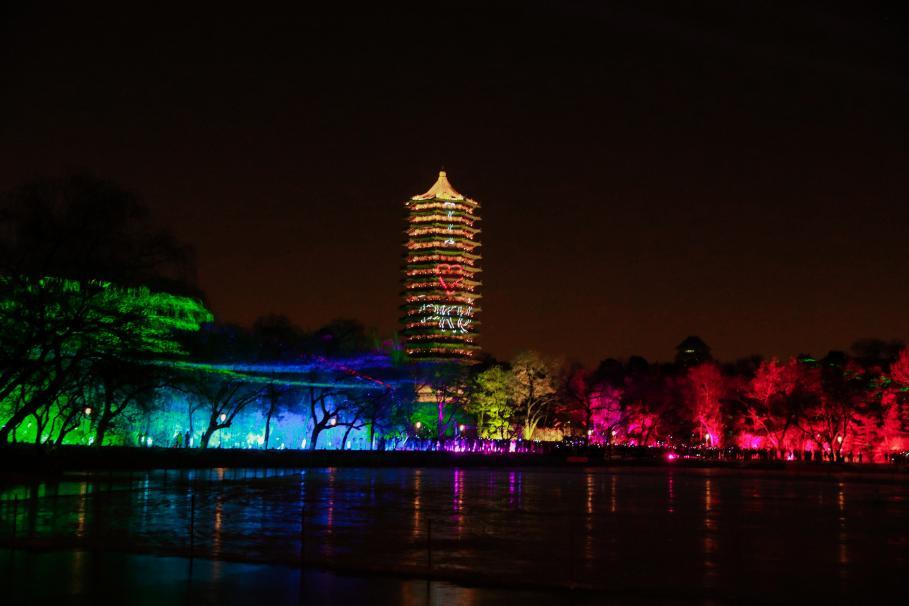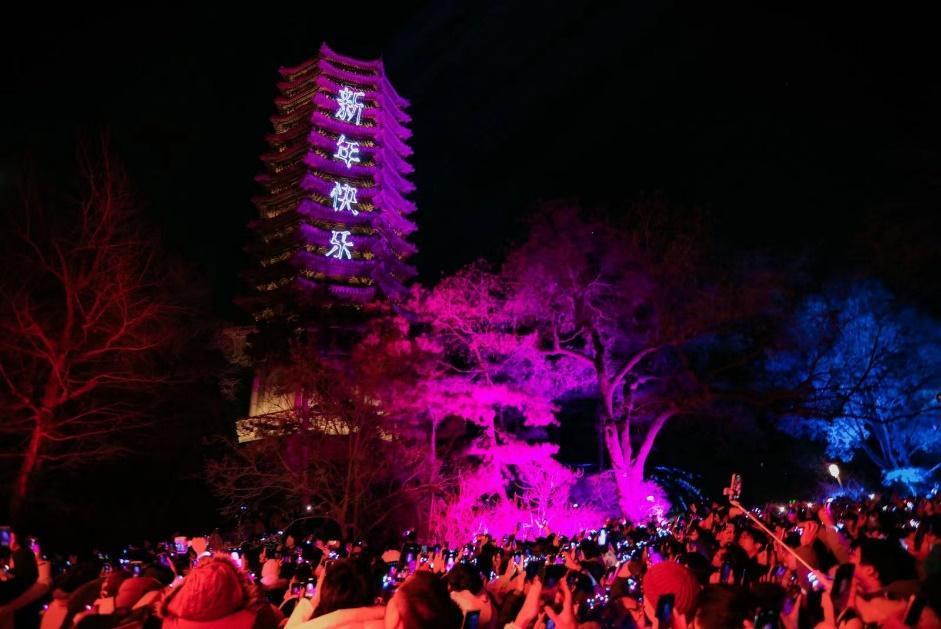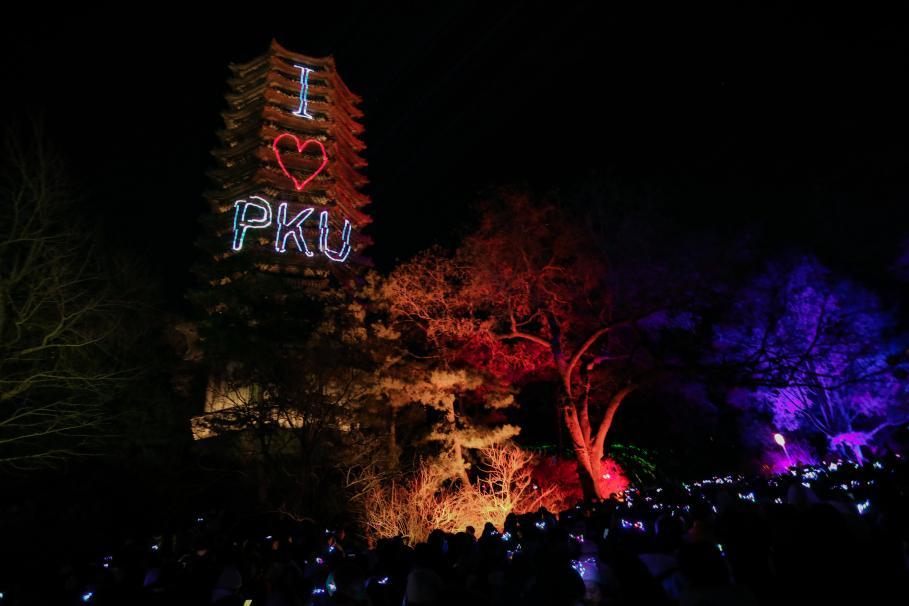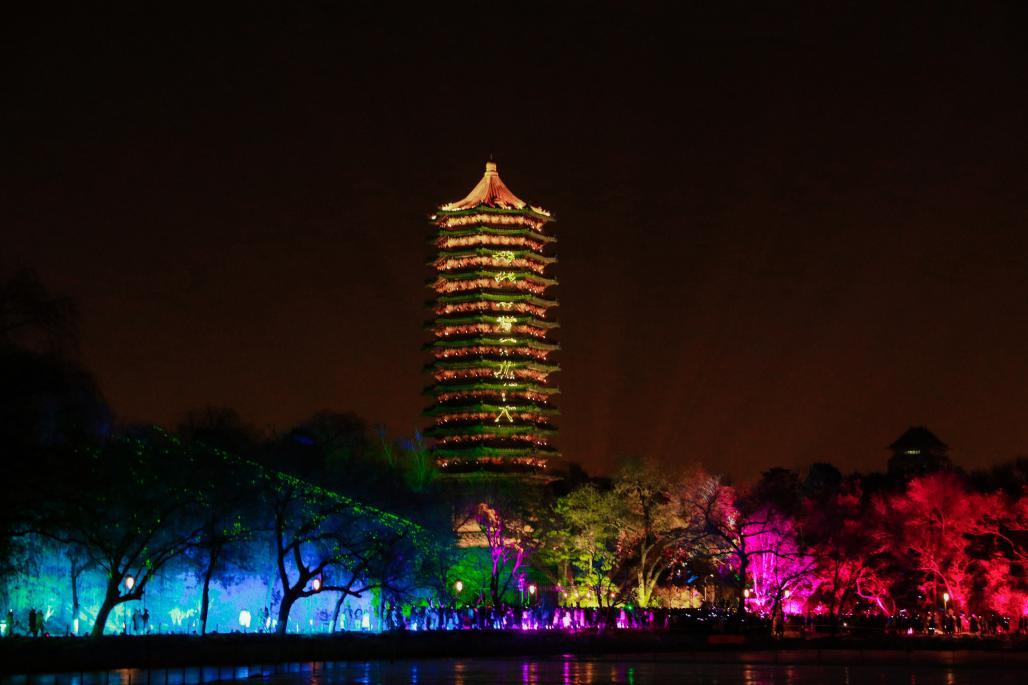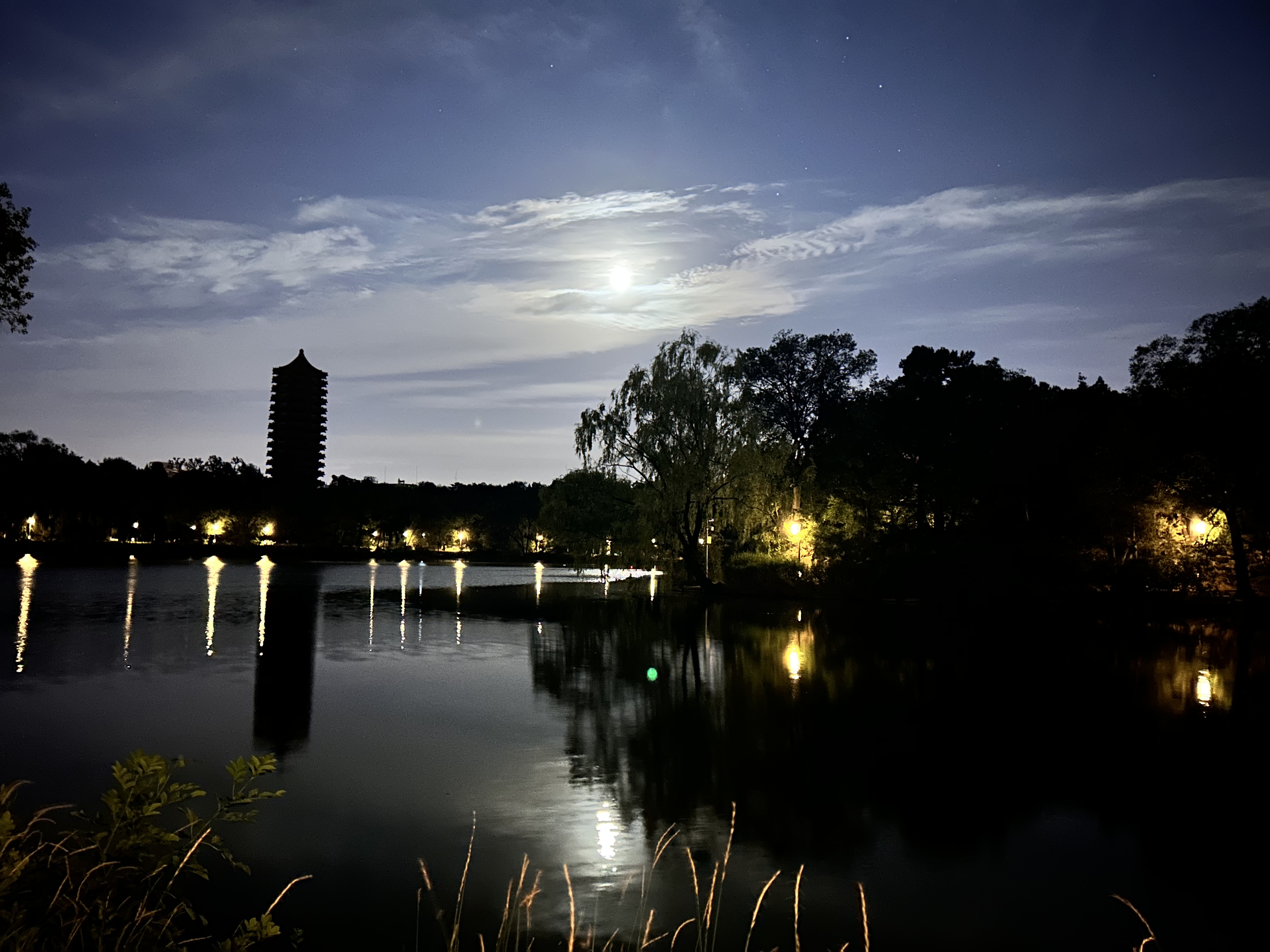Photos show a dazzling light show staged around Peking University's Boya Pagoda on New Year's Eve.
Boya Pagoda and Weiming Lake stand out as Peking University (PKU)'s most emblematic architectural landmarks. When one thinks of PKU, these two locations will first come to mind.
The Yan Garden is celebrated for its picturesque description as a "glimmering lake reflecting pagoda." The renowned Boya Pagoda, centrally located by Weiming Lake in the eastern part of the campus, has evolved from its original purpose as a water tower, built in 1924, into a cherished campus icon and a must-visit natural haven. Today, it serves as a popular backdrop for photos among tourists and PKUers alike.
This traditional Chinese structure boasts an octagonal upper section atop a square base, housing a spiral staircase that ascends to the top floor. Standing at 37 meters with 13 stories, Boya Pagoda is an architectural gem. The hollow interior showcases a winding spiral staircase from bottom to top.
Constructed in 1924, Boya Pagoda is a blend of traditional Chinese architecture with a western touch, evident in its reinforced concrete composition, excluding the stone base. Its name pays homage to Lucius C. Porter (also known as Boya Shi in Chinese), an American philosophy professor at Yenching University (later renamed Peking University), whose uncle, James Porter, funded the construction of the pagoda.
The pagoda's walls are adorned with murals depicting events from Chinese mythology and history. Beyond its architectural and historical significance, Boya Pagoda embodies the spirit of the University, featuring prominently in the University's seal and logo. It serves as an inspiration for students pursuing their goals and underscores the transformative power of music and the value of learning.
Everyone agrees that the best times to enjoy it are during festivals like the the Mid-autumn Festival, Lantern Festival, New Year's Day, and also the graduation season, even though it's beautiful all year round. You will be able to witness the magnificent Boya Pagoda illuminated during these special occassions.
Accessible to the public, Boya Pagoda offers panoramic views of the surrounding landscape and Peking University's campus. It stands as a testament to the importance of education and the pursuit of knowledge, symbolizing the harmonious coexistence of Chinese and Western cultures. A haven of natural beauty, Boya Pagoda invites visitors to relax and appreciate the tranquility it embodies.
Boya Pagoda and Weiming Lake after sunset
Written by: Jawad Shabbir
Photos by: Office of Student Affairs, Jawad Shabbir
